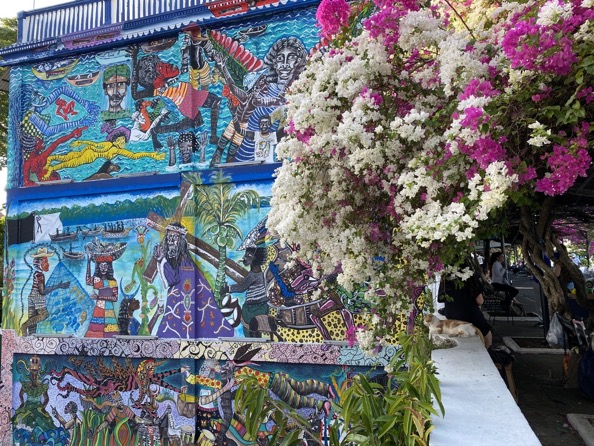Assumptions can be deadly!

Casco Viejo, Panama City, Panama, February 2020
I have just gotten back to Panama from the most amazing trip to Brazil. For a week, I was visiting some of the cities in the southern part of the country, where I tried understanding the work of some of the humanitarian organisations supported by ECHO working towards provision of various services to refugees arriving to the country. The mission brought me to Sao Paulo, Curitiba and the country's capital, Brasilia and gave me a chance to look at work of some of the NGOs, UN agencies and state and municipal authorities serving the migrants (including asylum seekers and refugees) arriving and settling in the country.
I must admit that given a very poor press that Brazil is getting from the international media these days, I was very worried of what I would be confronted with what I know from many other countries, including my home country, Poland… I assumed that the atmosphere concerning refugees and migrants in general, would be filled with increasing sentiments of xenophobia, unfriendly policies and growing obstacles for the migrants to find ways to survive in the country in a dignified way.
Now, I am back to Panama, reflecting on my mission, and… I am ashamed. I am ashamed for my silly assumptions and arrogance. What I found in Brazil challenged me in the most positive way. What I learnt is that Brazil has some of the most advanced and modern refugee and migration laws. Essentially, all foreigners are welcome and protected in Brazil. The polices that the country has in place are to ensure that the arriving migrants are treated fairly and are given opportunities to thrive in the same ways, as Brazilians are. What I was told is that the migration laws are formulated with the underlying conviction of the lawmakers and the society alike that 'migration is a human right'. As a consequence, all governmental agencies (on all levels) treat migrants with utmost dignity, respect, and thrive doing whatever in their power to find solutions to the people wishing to settle down in Brazil. What was even more amazing is that these sentiments were quite common and shared by all of the people that I spoke to, from taxi drivers, random people I met in my hotel during breakfast, to employees of the NGOs, and government agencies! How refreshing and wonderful! And yes, my Brazilian partners did tell me that the system is under strain, that the integration of the huge influx of refugees from Venezuela is challenging for inadequate resources, that there are many challenges relating to the integration, coming from the Brazilians and the migrants themselves, but essentially everyone assured me that most of the people in the country, religious institutions, organisations agree that the problems should be treated as a challenge and should be resolved rather than used as an excuse to give in to racism and xenophobia. 'We are all migrants, after all' I heard countless of time from many people… If this was not enough, the positive attitudes are cherished by the refugees and other migrants. People I interviewed and spoke to me, recognised that the life was difficult for them, but also underlined that they were very grateful to the Brazilian society, and planned to do whatever they could to be able to contribute to the well being of their new communities. How humbling, how encouraging and how wonderful!
I am so grateful to Brazil, Brazilians and all the foreigners in the country for the humbling lesson and I salute them all. I am just a bit jealous that the place where I come from is so different, so much more closed and unprepared to see humanity in people who need encouragement and support to rebuild their own lives. HATS OFF BRAZIL!
On another note, I am now getting ready to travel to Argentina. Tomorrow, I am flying to Buenos Aires, and then later in the week to Salta in northern part of the country. The surroundings of Salta seem to be experiencing an unprecedented food security crisis, resulting with alarming mortality of children due to malnutrition and related health complications. As I still know too little about the situation, I will refrain from providing you more information on the crisis now, but I will certainly share with you some of my experiences and observations in a few days' time.
